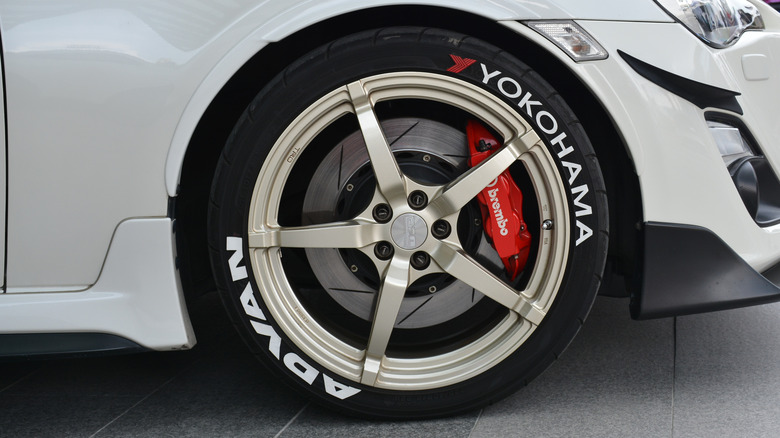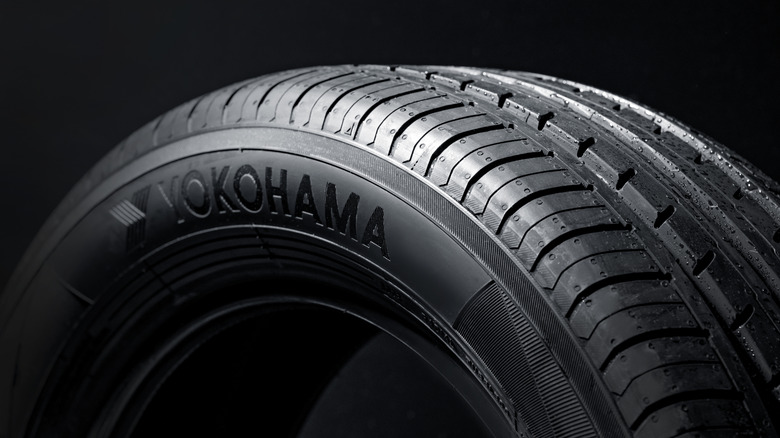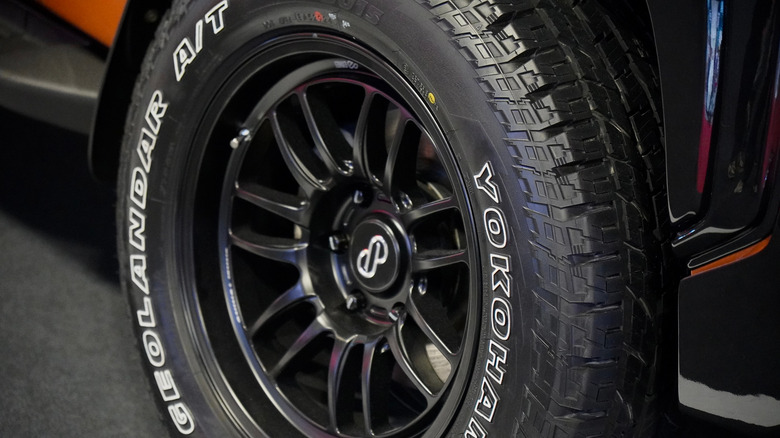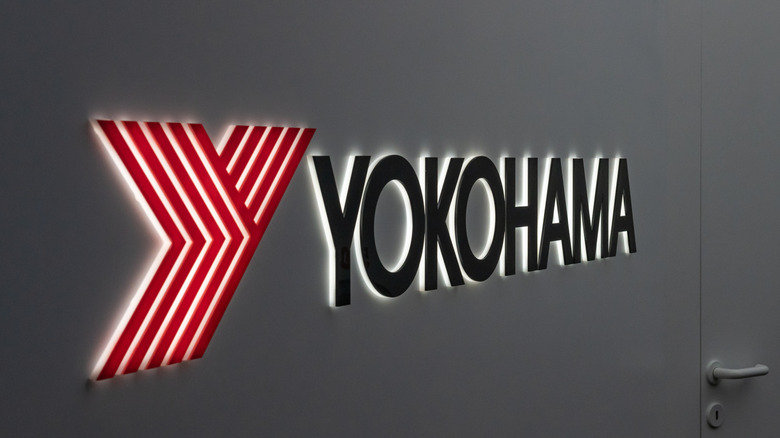Are Yokohama Tires Any Good? Here's What Owners Have To Say
Yokohama tires, manufactured by the Yokohama Rubber Company since 1920, are a popular choice for a wide variety of applications, ranging from your bread and butter all-seasons up to specialized performance models like track and off-road tires. Moreover, within those brackets, Yokohama offers multiple styles and tread patterns suitable for various road surfaces, noise levels, tire profiles, and widths, among other factors. Many of these tires come in dozens of different sizes, so it's virtually impossible to condense all of these into a singular statement of "Yokohama tires are good" or "bad."
That said, with so many tires, there will inevitably be some that are better than others, much less when you compare them to other tire manufacturers. After all, everyone has their own unique way of designing the tread, building the tire, and their own ideas of what the tires should be used for. In Yokohama's case, being a major brand with many different models in production, there's likely going to be something that'll fit your needs.
In general, owners and outlets typically praise Yokohama, with common themes of tire longevity, adequate grip, and good value-for-money performance across the board. In here, we'll focus more on the usual models of these tires you'll encounter every day, as opposed to ultra-high performance, track tires, crawlers, and so on. Those usual models are all-season and winter tires meant for typical passenger cars and crossovers, as well as their higher-profile SUV equivalents. Likewise, this isn't a comprehensive list of every tire and its reputation in different road conditions, merely a broader generalization of whether they're good or bad for daily driving.
Yokohama all-season and winter tires for daily drivers and crossovers
These tires are likely what you'll get if you're not doing anything particularly extreme with your car, just commutes, grocery shopping, highway driving, with normal sedans and crossovers with car tire sizes. Models that fall into this category include BluEarth eco-friendly tires and Advan, which are designed for premium cars such as sports and luxury models, each with their own subdivisions.
First up is BluEarth; these tires show their strengths in several areas. They are particularly eco-friendly, offer excellent wet weather braking performance, and are regarded as more comfort-oriented, suitable for daily driving, especially when new, although road noise picks up over time. BluEarth tires also offer good value-for-money, making for an overall excellent tire for general use. The only real complaints arise when the tire wears out, with mixed reports on how long it lasts depending on the driving style, though that's not surprising considering these tires aren't designed for high-speed cornering ability.
Advances, however, are very much designed for high-speed cornering — well, some of them are. But what about the more pedestrian summer tires you'd find on a sports car driving to the grocery store? In those cases, it'll likely be something like an Advan Sport V105, which offers its own compelling benefits, namely a sporty handling profile with good dry-weather grip and road feedback, though at the cost of being noisier and prone to wear. If road noise is a concern, then the Advan DB series covers that base, although its reviews are more lukewarm by comparison, with owners complaining about dry and wet-weather grip, as well as poorer wear.
SUV and winter tires
Next, we have tires designed for larger vehicles, such as full-size SUVs and pickup trucks. Such vehicles, as well as some crossovers, use one of several Yokohama Geolandar tires. These are all-terrain tires, as opposed to IceGUARD dedicated winter tires; each of these specializes in different applications. Yokohama's winter tires are actually some of the best-rated winter tires out there, boasting excellent reviews, albeit they're not perfect; some complain about ice performance being somewhat lackluster.
As for Geolandar tires, these models range from typical A/Ts up to specialized mud-terrain tires, so let's stick with the former. The Geolandar G015s in particular, distinguished by their aggressive lightning bolt-style sidewall, were particularly praised for their long-term durability, all-terrain traction on moderate off-road surfaces, as well as decreased road noise and higher levels of on-road responsiveness. In all, these tires didn't have many complaints at all, aside from a relative lack of snow traction compared to dedicated snow tires, which isn't entirely surprising.
Yokohama earns similar praise for its Geolandar X-CV tires for crossovers and similarly-sized vehicles. According to customer surveys, these tires excel at road comfort, with great bump absorption and smooth ride characteristics. In addition, customers report that the tires last a long time and have good winter-weather grip for basic stuff, though again, these are all-season tires, not specialized winter tires. For harsher winter weather, however, these tires didn't earn much praise, but they enjoy overall outstanding ratings for the most common driving conditions.
Our Methodology
This article is intended as an honest, straightforward, and neutral representation of Yokohama tires. It compiles information from various sources, including dozens of user reviews, long-term and high-mileage examinations of the tires' performance characteristics, and various periodicals and critical analyses. We also reviewed sources such as forums and message boards, being certain to take into account both positive and negative experiences with equal weight and consideration as much as possible.



